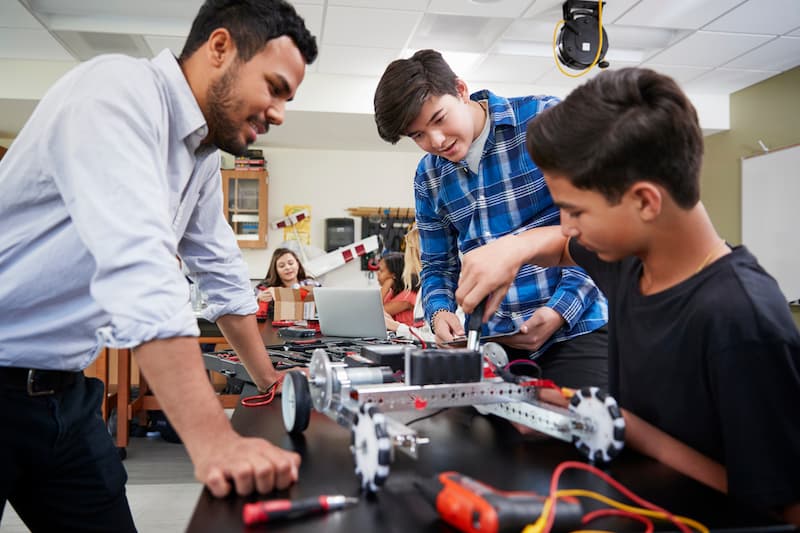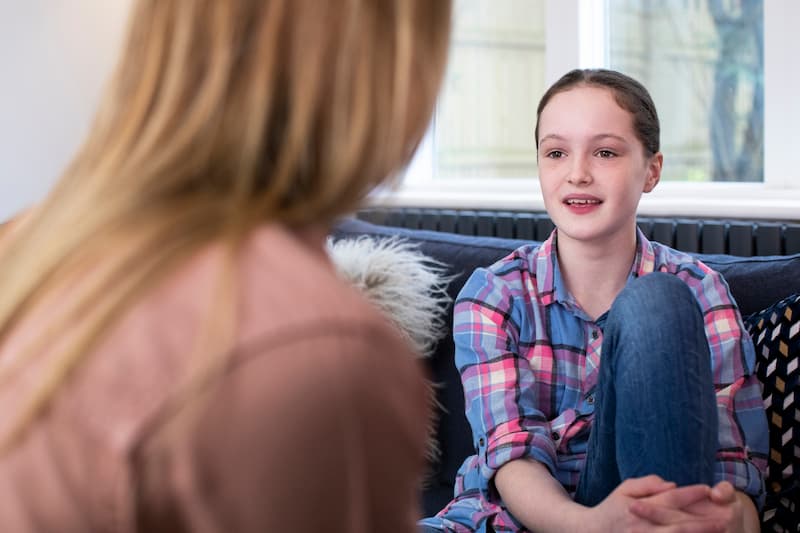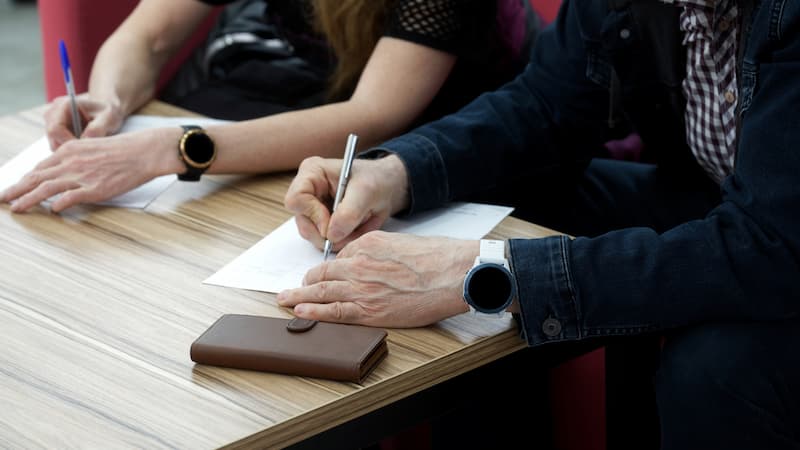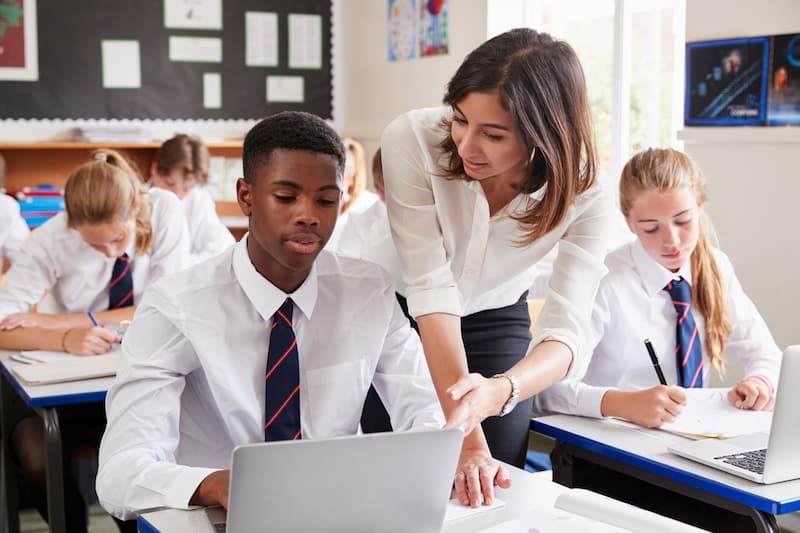Finding the right secondary school for your child is essential. Whilst children will grow to learn and interact with others, secondary school is where children will become dependent, and their environment will become the foundation of forming relationships for later in life. Their education is also vital through secondary school as this could influence the career path they choose and who they decide to be as adults.
As a leading provider of online tuition in Birmingham, we have seen many parents struggling with how to apply for a secondary school for their child. So, to help, we have put together a few things to consider. We have also included the dates to remember and where to go to apply for a secondary school place.
When Should You Start Looking at Secondary Schools?
There is no correct time to begin looking for your child’s prospective secondary school, but most parents will usually start assessing their options whilst their child is in year 5. You may even wish to start earlier if you live in an area with limited choices or a high demand for places. Although you may have heard great reviews about a school, visiting them in person allows you to get a better feel of what the school can offer your child and enables your child also to get a feel for the place where they will be spending the rest of their mandatory years in education.

Although leaving your visits until the final year of primary school is perfectly acceptable, making several visits over several years can help showcase how the school is progressing. A good school will consistently be making improvements with each year, so seeing how the school changes between your visits can be an excellent way to see how they are addressing the needs of the students.
One-to-One Visits Vs Open Evenings
When visiting your prospective schools, it is always a good idea to see them on a one-to-one appointment and during their open evenings. During the open evening, the school will showcase the best that their facilities offer, with exciting experiments, keen students willing to stay behind to show parents around and usually, there will be a deep cleaning of the school. Whilst you will be looking to see the school at its best, it is not the best way to get an accurate view of the school’s daily operation. However, the open evenings are still great for getting a feel of the school. They allow you to see how teachers interact with children, especially in busy environments and offer the chance to ask students questions about their own experiences in their time through the school.
In comparison, a one-to-one visit will allow you a more in-depth view of the school, and any good secondary school will offer a guided tour of their establishment any time throughout the year. A designated teacher, often a Head of Year, assistant head teacher or even the head teacher, will walk you around each department, introducing you to some teachers and exploring what the school facilities offer in much more depth than can be done on a busy open evening. It also allows you to see how a school operates on a day-to-day basis, giving a much more natural light on the school’s running. So, if you are undecided about your child’s school choices, book one-to-one guided tours throughout the day. It will help you to understand which will be a better fit for your child.

What to Look For in a Secondary School?
There are many things to consider when visiting the school. Many of which will be personal to the needs of your child. For example, for students who may be neurodivergent, a good SENCO facility will be an element you may be looking for. Alternatively, for students showing eagerness and excelling in a particular subject, you may be looking for excellent facilities to help them grow in that area, such as sports, maths or languages. However, even as an 11-year-old, their love for subjects will most likely change with each new school year. So, whilst choosing a school for its sports facilities may be a good idea, ensure they have an equally rounded curriculum to offer your child.
Other than the personal reasons for choosing a secondary school, there are many other things to consider.
How Clean Is the School?
Cleanliness should be something to look at during your visits. Look past the teaching areas, which may be carefully presented and visit the communal areas. Toilets, libraries, canteens and halls are an excellent way to see how well-maintained the school is kept.
How Big Is the School?
The size of the school may also be something you consider. Smaller schools may offer more one-to-one learning opportunities, whereas a larger school can create a community feeling within their students.
What Extra-Curriculum Opportunities Are There?
A school offering more extracurricular activities will allow your child to grow their knowledge and skills further than the classroom, which may help them later in life. The more opportunities you can offer your child, the broader their experiences will be.
What Does the Curriculum Offer?
Although each school will cover the national requirements, what else does the curriculum offer your child? Many schools are expanding on life skills with budgeting lessons, relationships, mental health awareness, and other elements that may help them as adults.
Should You Involve Your Child in the Decision?
Absolutely. Involving your child in the choice will help them to settle in better when they start their first year of secondary school. If you choose a school which they have strong opinions against, this may affect their learning and hinder their experience and performance within their school education. Getting them involved from the start allows them to feel part of the process and take an element of responsibility for their own education.

They should be with you when you visit the schools. However, if you are booking a one-to-one visit, you may wish to do this without them if you have some personal questions you may not like them to hear (for example, if you have a child who requires SENCO facilities). Still, speaking with them about the choices and deciding on them together can help offer them a great start to their secondary education. Of course, whilst the decision remains firmly with you as their guardian, opening that dialogue provides a more balanced decision for your child’s best interest.
Applying For a Secondary school
The deadline for applying for a secondary school is the 31st October each year for students in year 6. This is why we recommend making your decisions earlier than their final year. Most local authorities will allow you to submit your applications as early as September, but even if you offer your choices early, it does not mean you are guaranteed your place. You apply for Secondary school places through your local authority. They are not served on a first-come, first-served basis, so there is no need to worry about getting in your application until the deadline. Most applications can be made online, but speak to your child’s current primary school if this is not an option for you.
Each school has criteria for admissions, which can usually be found through your local council’s website under their application for a secondary school page. Often they may require an 11 Plus exam, a separate test from their SATs. This test usually gives children the advantage of getting into more academically driven schools, usually grammar schools, and we can help with preparation with our successful 11 Plus Grammar tuition.
The application will ask for three choices of schools, your first choice, second choice and third choice. We suggest ensuring you fill in each box as this will help guarantee your child a school that you have chosen. If there is no room within the first two schools and you have left the third one blank, the local authority will assign a school you may disagree with. However, most schools will try to accommodate as many first-choice pupils as possible, but this is not guaranteed.
Appeals and Waiting Lists
Acceptance letters are issued on 1st March following your application. If this falls on a weekend, it will be issued the next working day. If you have chosen to do this online, you may be able to access the information reasonably quickly.
However, if you are unhappy with the outcome of your admission to your chosen school, there are two options you can take.

Appealing the Decision
Whilst most local authorities will aim to fulfil the wishes of the options, it is not always possible, and this could lead to getting a place within a school which may not be practical. You have the right to appeal to an Independent Admission Appeal Panel, whose members played no part in the original allocation of places. Appeal details will be provided in the letter which offers your child a place.
Waiting Lists
If the place you receive is not one you were hoping for, there is often the chance to request that you are placed on a waiting list for when a place becomes available. Even if you put the school as your first choice, this doesn’t automatically put your child on the waiting list. Contact the educational sector of your local authority for more information about putting your child on a waiting list.
Any appeals should be submitted by 10th March for a quick response. After this deadline, your case will be chosen when there is time and could delay the actions needed. So, if you are looking to appeal the decision, submit it before this date.
Getting Help For the Final Year at School
The last year of primary school can often be challenging for some children, from the pressures of Year 6 SATs preparation or even the skills practice for their 11 Plus. As a leading tuition provider in Birmingham, we can help ease the stresses with online tuition and workshops. Take a look at all we can offer online, and give us a call to speak with us about the exact needs your child may have. We have excellent success rates with all our students and will provide everything they need for the start they need for secondary school.


